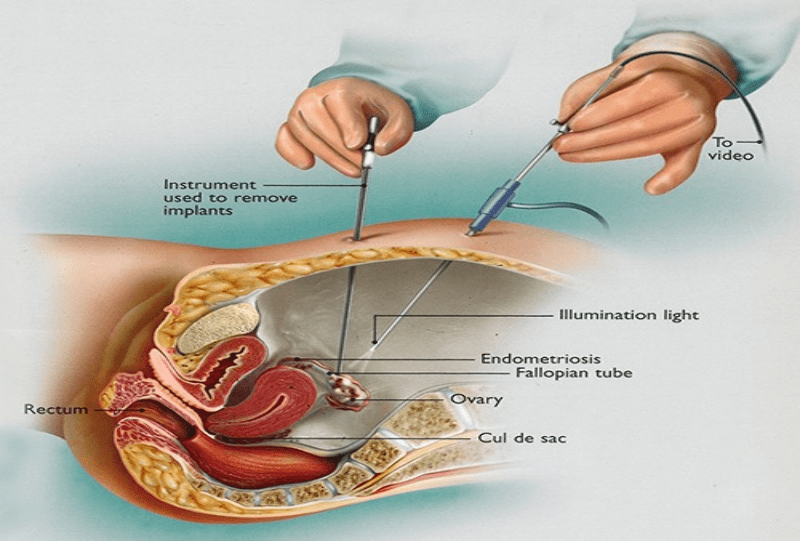Laparoscopic Gynecological Surgeries: Benefits, Procedures, and Recovery
Laparoscopic gynecological surgeries are a common and minimally invasive option for treating various conditions related to women’s reproductive health. These surgeries offer many benefits, including smaller incisions, faster recovery times, and less pain compared to traditional open surgeries. If you’re considering a laparoscopic procedure or just want to learn more, here’s what you need to know.
What is Laparoscopic Surgery?
Laparoscopic surgery, also known as keyhole surgery, is a technique where the surgeon uses a thin, flexible tube with a camera and light at the end, called a laparoscope, to view the inside of the abdomen and pelvis. Instead of making a large incision, the surgeon makes a few small cuts (usually less than an inch long) and inserts the laparoscope and other surgical instruments through these openings.
The camera sends images to a monitor, allowing the surgeon to see and operate with precision. This minimally invasive approach is used for various gynecological surgeries.
Common Types of Laparoscopic Gynecological Surgeries
- Laparoscopic Hysterectomy: This is the removal of the uterus through small incisions in the abdomen. It may be done to treat conditions like fibroids, heavy bleeding, or cancer.
- Laparoscopic Ovarian Cystectomy: This procedure removes cysts from the ovaries while leaving the healthy parts of the ovaries intact. It’s commonly done to treat painful or large ovarian cysts.
- Laparoscopic Endometriosis Surgery: For women with endometriosis, where tissue similar to the lining of the uterus grows outside it, laparoscopic surgery can be used to remove or destroy these growths.
- Laparoscopic Myomectomy: This procedure removes fibroids (non-cancerous growths) from the uterus while preserving the uterus, which is important for women who wish to maintain fertility.
- Laparoscopic Tubal Ligation: This is a permanent form of birth control where the fallopian tubes are blocked or sealed to prevent pregnancy.
Benefits of Laparoscopic Gynecological Surgeries
Laparoscopic surgeries offer several advantages over traditional open surgeries:
- Smaller Incisions: The incisions made during laparoscopic surgery are much smaller, which means less scarring and a quicker recovery.
- Less Pain: Because the incisions are smaller, there is generally less pain after the surgery.
- Shorter Hospital Stay: Many laparoscopic procedures are done on an outpatient basis, meaning you can go home the same day.
- Faster Recovery: Most women can return to normal activities sooner compared to open surgery, with recovery times varying depending on the specific procedure.
- Lower Risk of Complications: The minimally invasive nature of laparoscopic surgery often results in a lower risk of infection and other complications.
What to Expect During Recovery
Recovery from laparoscopic surgery is generally quicker and easier than recovery from traditional surgery, but it’s still important to take care of yourself:
- Rest: Take it easy for a few days after surgery. Avoid heavy lifting and strenuous activities for at least a week or as advised by your doctor.
- Follow-Up Care: Attend all follow-up appointments to ensure you are healing properly. Your doctor will check your incisions and monitor your recovery.
- Pain Management: You may experience some discomfort around the incision sites or in your abdomen. Over-the-counter pain relievers or prescribed medication can help manage this.
- Watch for Signs of Infection: Keep an eye on your incisions for signs of infection, such as redness, swelling, or discharge. Contact your doctor if you notice any of these symptoms.
- Gradual Return to Activity: Start with light activities and gradually increase your level of physical activity as you feel better. Most women can return to work and regular activities within a week or two.
Laparoscopic gynecological surgeries are a safe and effective option for many women dealing with reproductive health issues. The minimally invasive nature of these procedures means smaller incisions, less pain, and a quicker recovery, allowing you to get back to your life sooner. If you’re considering a laparoscopic procedure, talk to your doctor to learn more about how it can benefit you.

